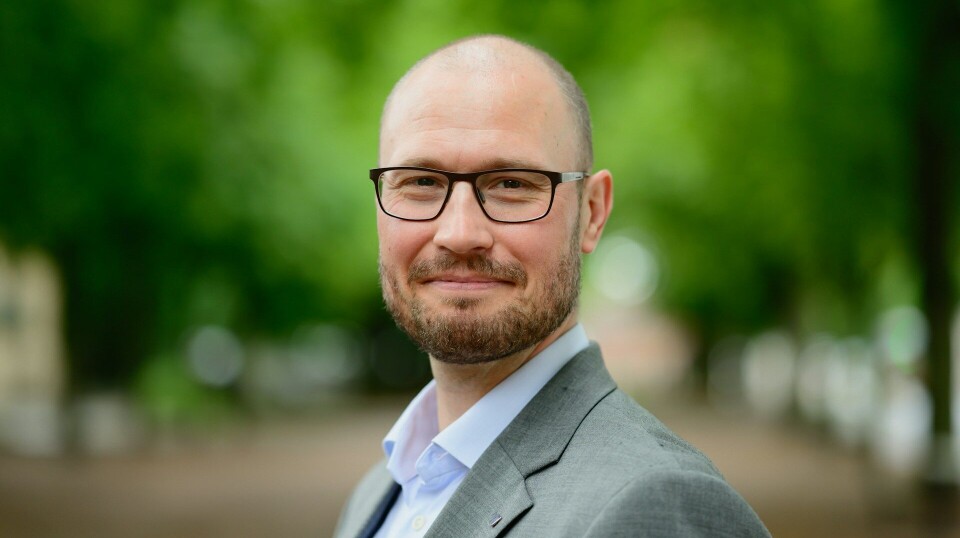
Psychologists believe we need a new approach to treating mental health problems
Over the past five years, sickness absence due to mental health problems has increased by 44 per cent. However, new research shows that being off work is often not an effective treatment.
Among all causes of sickness absence, mental health symptoms and conditions have increased the most in the last quarter. This category includes issues like burnout.
The increase is most pronounced among young people, especially those in their twenties, with 30 per cent of sickness absence in this age group being attributed to mental health problems.
This trend has raised concern among authorities. Mental health professionals also find these developments alarming and serious.
More people are struggling at work
“We psychologists don’t have a simple explanation for why this is happening,” says Håkon Kongsrud Skard.
He is president of the Norwegian Psychological Association.
“I think it's safe to say that the demands of the workplace have increased, both in terms of skills and productivity expectations. This has led to more people finding it difficult to keep up,” he says.
Skard also suggests that one contributing factor may be the blurring of boundaries between work and personal life, with today's job expectations being more unclear than in the past.

“We’re all familiar with the constant notifications from our inbox, even after working hours. But whether this is a factor contributing to increased sickness absence is unclear,” he says.
We might also be setting higher expectations for ourselves in general. We are expected to perform well in all areas of life, says Skard.
Rest alone is not an effective treatment
Psychological specialist Ragne Gjengedal agrees with Skard that the changing nature of the workplace might explain the increase in sickness absence for such conditions.
Feeling burnt out or exhausted can be a precursor to depression and anxiety, so it needs to be taken seriously, she believes.
“But research shows that completely stepping away from a challenging situation, like work, isn’t an effective form of treatment,” she says.
Isolation makes it worse
Gjengedal, who heads a unit at Diakonhjemmet Hospital, conducts research on sickness absence among patients with anxiety and depression.
Her research, along with that of others, shows that treatment for mental health problems must be provided alongside support to return to work.
“Sick leave may be necessary for a period, but we know that long-term sickness absence increases the likelihood of falling entirely out of the workforce,” she says.
Inactivity and isolation, which often occur with depression and anxiety, only make the condition worse, says Gjengedal.
“We now have research from the Netherlands and are starting to see similar studies in Norway showing the benefits of combining psychological treatment with help to reenter the workforce,” she says.
This research shows that it works, she explains.
“Our research indicates that by incorporating work-related support into treatment, patients can be helped with both their mental health problems and their return to meaningful employment,” she says.
Improved collaboration
Gjengedal is researching how healthcare services can collaborate to achieve this and has written a PhD on the topic.
In her opinion, this collaboration is insufficient in Norway, although she has seen positive developments, particularly through the Health and Work initiative, which aims to improve both health outcomes and job management.
“When you break your arm, no one expects you to go back to work without support to manage it. But you are expected to return before completing all treatment. In mental health care, this hasn’t been the case. We’ve provided treatment and then expected patients to return to work once the treatment ends, but returning after sickness absence due to mental health issues can be much more difficult,” she says.
Work situation needs to be addressed
To change this, Gjengedal believes that healthcare providers, workplaces, and GPs need to collaborate and create a return-to-work plan.
They need to assess the patient's work situation.
“Some people have highly stressful work situations. We need to help them cope with that. Others may experience bullying or harassment at work. In such cases, it’s crucial to support their return to a different work environment, whether with the same or a new employer,” she says.
Wrong treatment for too long
Håkon Kongsrud Skard believes that not all individuals with mental health problems should return to work before they have completed treatment.
“Of course, some people need sick leave, and there are certainly cases where individuals can’t work because of their mental health, whether temporarily or permanently. But for far too long, we’ve assumed that if you’re sick and struggling, the best solution is to rest and avoid work stress,” he says.
However, for mental health problems, activity, mastery, and social engagement are essential, he points out.
“Maintaining and utilising the healthy, functioning part of yourself is incredibly important in the recovery process. What we need, therefore, is treatment and work participation in parallel,” he says.
Great potential for improvement
Skard believes we need accessible, multidisciplinary mental health services in the municipalities that can collaborate with the Norwegian Labour and Welfare Administration (NAV) and GPs.
“This infrastructure hasn’t been developed. For 12 years, since the Coordination Reform in 2012, there’s been talk about increasing the workforce in primary healthcare at twice the rate of specialist healthcare,” he says.
Skard notes that the exact opposite has happened.
“It’s not that mental health services don’t exist, but the variation between municipalities is too large. The mix of expertise is inconsistent. There’s great potential for improvement and greater efficiency, both for individuals and society, if health services and NAV collaborate more effectively,” he says.
He adds that several projects have examined these initiatives and proven their effectiveness.
“We already know enough to scale them up significantly,” he says.
Doing so would reduce sickness absence and provide quicker, more effective help to more people, he believes.
———
Translated by Alette Bjordal Gjellesvik
Read the Norwegian version of this article on forskning.no
Related content:

Subscribe to our newsletter
The latest news from Science Norway, sent twice a week and completely free.





































